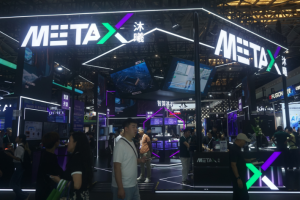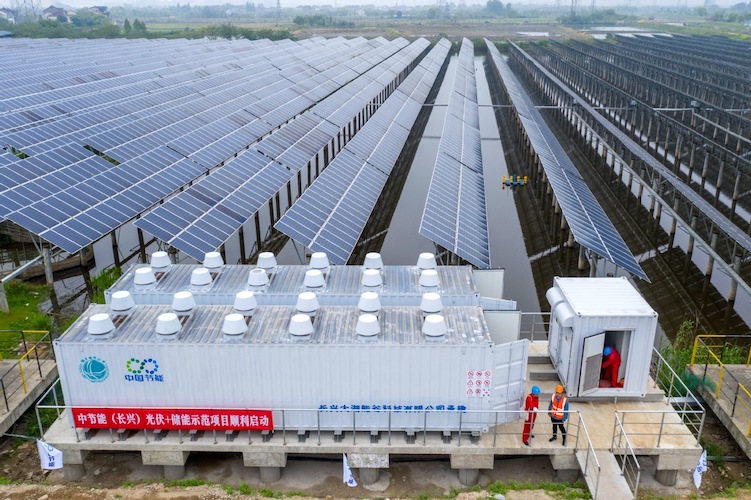China’s tightening grip on exports of critical minerals needed for chipmaking could end up triggering a global shortage of semiconductors, experts have warned.
Beijing has, since last year, significantly cut its exports of gallium and germanium — two metals key to the production of high-speed computer chips.
China dominates the supply of both the metals, accounting for at least 60% of global germanium production and nearly 90% of the world’s gallium output.
Also on AF: ‘Wealthy Nations’ Fossil Fuel Deals Threaten a Global Catastrophe’
But industry insiders told the Financial Times this week that Beijing was now exporting only “a fraction” of the two metals, compared to the past.
“The situation with China is critical. We are depending on them,” one employee at a semiconductor materials business told the FT.
Meanwhile, a metals trader told the FT that China wasn’t “even offering germanium overseas now.”
Beijing’s blockade on exports off the two metals began in August last year — a move it said was meant to protect its “national security and interests”. But the restrictions were largely seen as retaliation against the West’s ongoing efforts to cut off China’s access to advanced tech.
Any firm looking to export those metals now would now need the commerce ministry’s approval on each individual shipment — a process that can take anywhere between 30 to 80 days.
Furthermore, if authorities wish to cut-off supply to a specific country they can simply deny all licenses for shipments headed there.
Running out of supply
Markus Roas, a metals business manager at New York-based Indium Corporation told FT that the new licensing regime has meant that US businesses were finding it “really hard” to get a hold of shipments of the metals.
His firm only had “a couple of weeks” worth of germanium and gallium left, Roas added.
Meanwhile, another chip materials executive said gallium reserves at his firm “will be consumed and there will be shortages,” if China continues to reduce exports of the metal.
It is worth noting here, that China’s initial announcement of the curbs yielded mixed reactions from chipmakers and related businesses. The world’s biggest gallium buyer — German firm Freiberger Compound Materials — said its clients were “not relaxed about the curbs at all.”
Meanwhile, major chip firms like TSMC and Intel said they did not expect any impost on their business. An Intel spokesperson said the firm’s “strategy of having a diverse, global supply chain” minimised its risk.
Another US chipmaker Navitas Semiconductor said it expected no adverse effects as “significant sources of gallium are available worldwide.”
Separately, the Pentagon noted it had a strategic germanium stockpile but no gallium reserves.
Prices soar; respite unlikely
Despite tempered initial expectations, prices of gallium and germanium have nearly doubled in the month’s since China enforced its curbs.
In July, speculation of possible buying from China’s state stockpiling agency drove prices of germanium to a record high in China — up 38% since export restrictions took effect. That jump reverberated across global markets, with prices jumping nearly 70% in Europe since June.
In a report in March, the US International Trade Commission warned that rising prices of the metals would mean “the output of devices that require semiconductors could fall over the coming months.
Any respite from the ongoing supply chain uncertainty remains unlikely, however, considering ties between China and the US have only tensed further over the past year.
China has since imposed similar curbs on exports of antimony, graphite and technology to make rare earth magnets.
Starting October, Beijing is also set to put in effect regulation that states “China’s rare-earth resources belong to the state”. The move will give Beijing reach over the entire supply chain of rare earths.
- Vishakha Saxena
Also read:
China to Curb Exports of Antimony Metals, Ores, Oxides – SCMP
US Tech Firms Face ‘Death Spiral’ From New China Curbs: Lawmakers
Curbs on Chipmaking Metals ‘Just The Beginning’, China Warns
China Metal Curbs, Rare Earths Risks Fuel Hunt For Safe Sources
World’s Biggest Gallium Buyer Doubts Long China Export Ban
China’s Gallium Curbs a Headache for EV Carmakers
Western Firms Struggling to Break China’s Grip on Rare Earths
US ‘Drawing Up List of Sanctioned Advanced Chinese Chip Fabs’
China Bans Government Computers From Using Intel, AMD Chips: FT
China’s Retaliatory Bans Could Cost US Tech Giants Billions
























